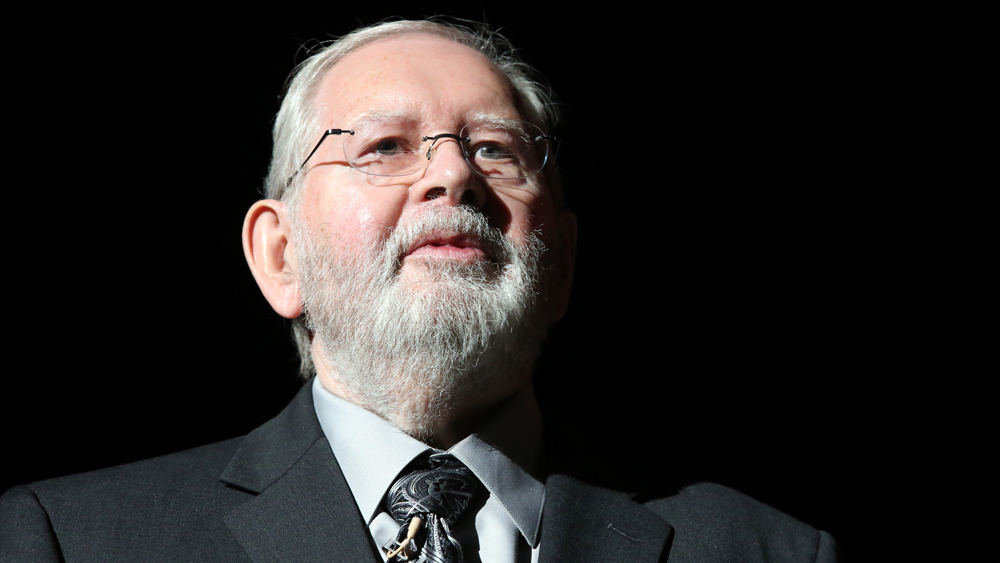‘The Simpsons’ Hip-Hop Episode Cued Curtains for Composer
By Gene Maddaus
LOS ANGELES (Variety.com) – In November 2016, the creative team behind “The Simpsons” began work on a special hour-long episode. It was a hip-hop parody of “The Great Gatsby” — laden with references to the Fox soap “Empire” — that would succeed or fail based on the music.
The problem, in the view of executive producer James Brooks, was the show’s 75-year-old composer. Alf Clausen had scored more than 500 episodes in 27 years on the show, penning such immortal work as “We Put the Spring in Springfield.” But the producers knew that hip-hop was well outside his comfort zone.
“Brooks questioned whether Clausen was the right person to prepare rap music and questioned his work more generally,” said Richard Sakai, a producer on the show, in a court declaration filed on Tuesday.
In a few months, Clausen would be ousted from the show. Last year, he filed a wrongful termination lawsuit against Fox and Brooks’ company, Gracie Films, saying he had been fired due to his age and disability.
Fox’s attorneys filed their response on Tuesday, laying out their case that Clausen was let go for legitimate “creative” reasons. The filing included declarations from Brooks and several producers and executives, offering a rare glimpse into the workings of the show.
The conflict over the rap episode, titled “The Great Phatsby,” was only one of the issues. The producers also acknowledged that the show had been looking to trim costs, and the 35-piece live orchestra used by Clausen was an obvious place to cut. In addition, the producers expressed alarm that Clausen was farming out his work to other composers, including his son, without permission. They also said that he could be difficult to collaborate with.
At bottom, though, they felt that he had not kept up with the times. Matt Selman, one of two showrunners, said in a declaration that Clausen was most comfortable with classical, big band and jazz music. If they needed something else — rap, hip-hop, grunge, or EDM — they would often go to the laborious process of bringing in an outside composer.
“(O)ur creative possibilities were limited by Clausen’s abilities,” Selman said in the declaration. “The Simpsons has been broadcast now for over 30 years. In my view, it is important for the show to reference and use the musical genres that are popular at the time or that evoke relevant cultural references, because the show entertains not only by telling a story but also by making these cultural references — and musical references are incredibly important for that. At some point, it became clear to me that Clausen was not adept at composing all the myriad forms of music desired for the show.”
In an amended complaint earlier this month, Clausen revealed that he has Parkinson’s disease, though at the time he was still working on the show it was under control with medication. However, his attorneys said that after he was fired he suffered “severe emotional consequences,” and his physical and emotional condition rapidly deteriorated.
The complaint also cites Clausen’s 23 Emmy nominations, and argues that he “performed the essential duties of his job exceptionally well and to Defendants’ complete and total satisfaction.”
On “The Great Phatsby,” the producers brought in Jim Beanz, who wrote most of the music on “Empire,” to work with Clausen. Brooks was excited about the episode, according to Selman’s declaration, because he thought it was a “fun concept.”
But when Brooks heard Clausen’s orchestral cues, he was “not pleased,” Selman said. “As showrunner, I also thought we could do better because the episode did not seem as musically rich or vibrant as I had hoped.”
Writing for the AV Club, Dennis Perkins gave the episode a generally favorable review , while acknowledging the show’s limitations.
“Look, The Simpsons is not the hippest show in town,” Perkins wrote. But, he wrote that the episode had been infused with “enough legitimate blackness to make the whole ‘Simpsons do a rap episode’ thing less cringe-inducing than perhaps the initial description made it sound.”
For Clausen, the hook was coming. Brooks was troubled by the revelation that Clausen’s son was doing much of the work, and held a series of meetings with his producers.
“I believed that the series could do better with regard to the music,” Brooks said in a declaration. “We decided we should look to find a new composer.”
Brooks turned to Hans Zimmer, who had worked on “The Simpsons Movie” and many other films. Ultimately, they decided to hire Bleeding Fingers Music, a composing collective that Zimmer had started, and to let Clausen go.
Bleeding Fingers relied much more heavily on computer “synth” music. The switch saved about 40% of the show’s music costs. (In his declaration, Sakai said that money now goes to animation and “additional creative content,” and that the budget has not changed.)
Clausen was given an “emeritus composer” credit for the next two seasons, along with $2,500 per episode.
Whether the music has improved up for dispute. Selman, who hoped to expand the “breadth and relevance” of music, said in his declaration that Bleeding Fingers “can handle different genres better than Clausen because they have many composers.” He also said the synth music was so good that he couldn’t hear the difference.
But according to Clausen’s complaint, the new music is “inferior in quality, depth, range and sound, yet stylistically similar in substance.”

